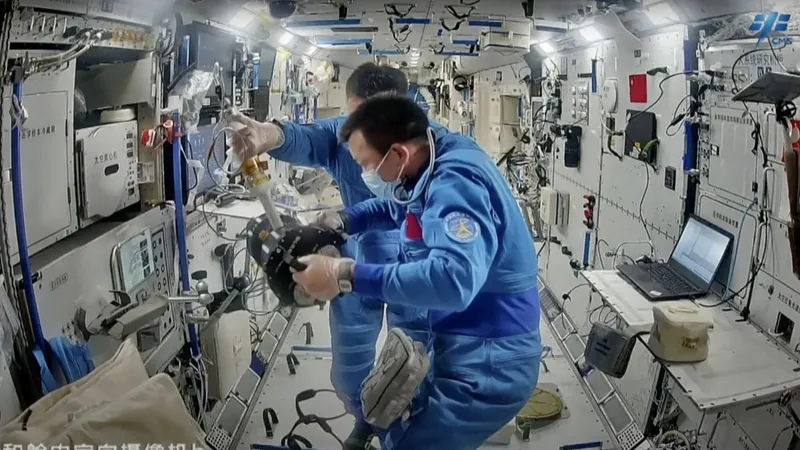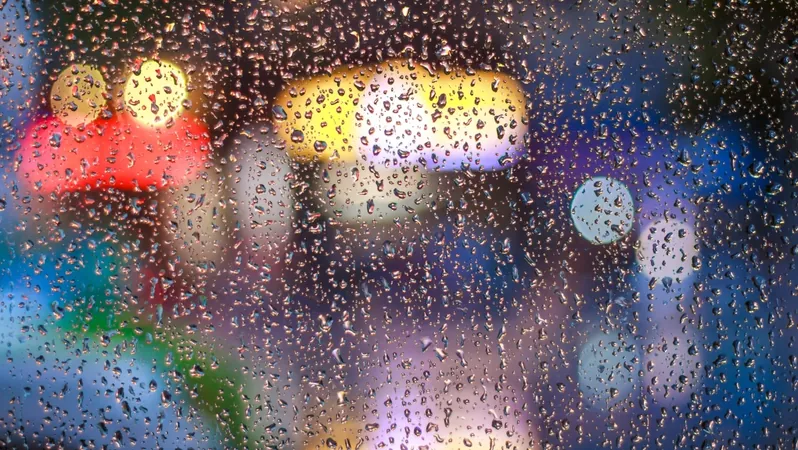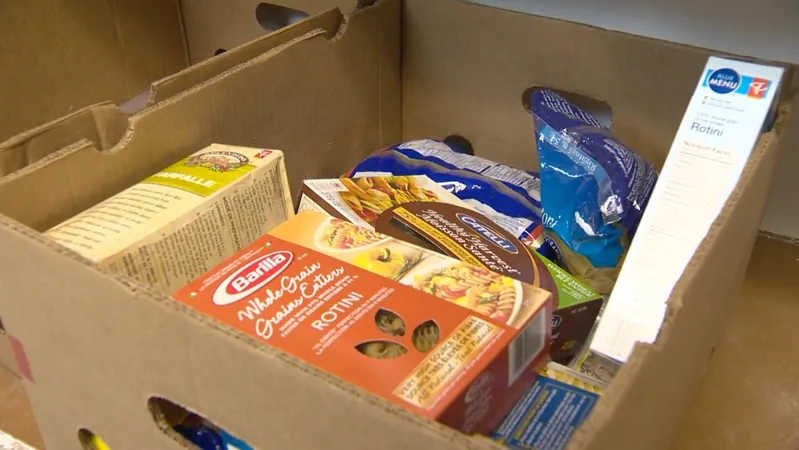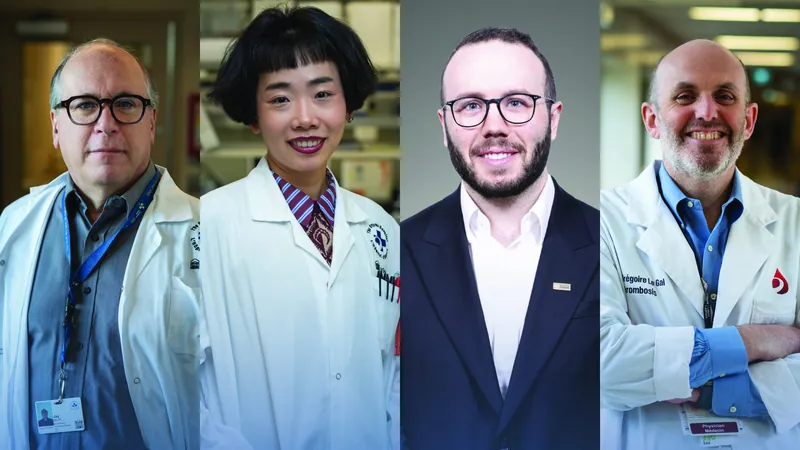
Fruit Flies in Space: A Groundbreaking Experiment by Chinese Astronauts on Tiangong Space Station! (Watch the Video)
2024-12-02
Author: William
Fruit Flies in Space: A Groundbreaking Experiment by Chinese Astronauts on Tiangong Space Station! (Watch the Video)
Chinese astronauts aboard the Shenzhou 19 mission are pioneering a captivating experiment with some unique companions—fruit flies! These tiny winged creatures have arrived at the Tiangong space station as part of a fascinating research initiative aimed at unraveling the mysteries of life in space.
On October 29, the Shenzhou 19 astronauts began their six-month stay at the Tiangong space station, welcoming 15 adult fruit flies and 40 pupae sent via the Tianzhou 8 resupply mission on November 15. This initiative marks a significant step in exploring the effects of space conditions on biological organisms.
According to Zheng Weibo, a researcher from the Shanghai Institute of Technical Physics under the Chinese Academy of Sciences, this experiment is pivotal for studying the molecular mechanisms of fruit flies in microgravity and sub-magnetic environments. “We are particularly interested in observing their movement characteristics and any alterations in their biological rhythms,” Zheng explained during an interview with China Central Television (CCTV).
But why fruit flies? These tiny insects provide invaluable insights into genetics and neuroscience, offering a model to understand complex biological processes. Zheng emphasized the relevance of magnetic fields, stating that as humanity ventures deeper into space, understanding life forms' reactions to different magnetic environments is essential. "In low Earth orbit, we are still under the influence of Earth’s magnetic field," he noted. "We have engineered a sub-magnetic environment within the space station for this study."
This groundbreaking research is unprecedented as it seeks to assess the combined effects of microgravity and altered magnetic fields on living organisms. The results could have profound implications for future deep space missions.
Additionally, project head Li Yan revealed that upon returning to Earth, frozen samples of the fruit flies will be analyzed to compare gene expression with those in similar groups under regular conditions. This analysis aims to shed light on how both the absence of gravity and magnetic fields impact biological processes.
This experiment symbolizes a leap forward in understanding life in space, paving the way for future explorations that could expand our knowledge of biology beyond Earth. Stay tuned as we await exciting findings from this out-of-this-world research!









 Brasil (PT)
Brasil (PT)
 Canada (EN)
Canada (EN)
 Chile (ES)
Chile (ES)
 España (ES)
España (ES)
 France (FR)
France (FR)
 Hong Kong (EN)
Hong Kong (EN)
 Italia (IT)
Italia (IT)
 日本 (JA)
日本 (JA)
 Magyarország (HU)
Magyarország (HU)
 Norge (NO)
Norge (NO)
 Polska (PL)
Polska (PL)
 Schweiz (DE)
Schweiz (DE)
 Singapore (EN)
Singapore (EN)
 Sverige (SV)
Sverige (SV)
 Suomi (FI)
Suomi (FI)
 Türkiye (TR)
Türkiye (TR)